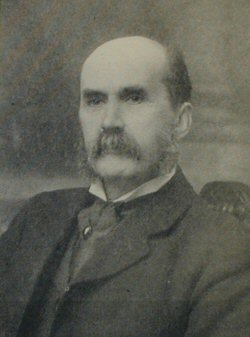 ROBERT BLYTH
ROBERT BLYTH ROBERT BLYTH
ROBERT BLYTH THE General Manager of the Union Bank of Scotland,
Limited, is descended from a family which came originally from Kinross. His
grandfather was a leather merchant in Glasgow, and his father a partner in the
firm of Lethem, Blyth, & Lethem, muslin manufacturers in the city. Mr. Blyth was
born in Glasgow in 1843, and educated at Glasgow Academy, Glasgow University,
and New College, St. John's Wood, London. He began business life as an
apprentice in the office of the late James McClelland. founder and first
president of the Glasgow Institute of Accountants and Actuaries. After a ten
years' clerkship be became a partner of the firm, and during the next ten years
he enjoyed a large practice as an accountant. He came prominently before the
public in connection with the liquidation of the Western Bank; and he held the
coveted auditorship of two Scottish banks and an Irish bank.
In 1891 he was appointed Manager of the Scottish Amicable
Life Assurance Society. Under his charge, in the first year, the new business
exceeded £400,000, and in the third year £500,000 sterling. In the latter year,
1894, Dr. Charles Gairdner retired from the general management of the Union
Bank, and Mr. Blyth was invited to become his successor. He entered upon his new
duties on 1st January following. The bank, founded in 1830, has a paid-up
capital of £1,000,000, a reserve fund of £876,000, and deposits exceeding
£12,000,000.
In 1893 Mr. Blyth was elected a Fellow of the Faculty of
Actuaries in Scotland, and President of the Insurance and Actuarial Society of
Glasgow. During the first year of his presidentship he lectured on "The Tendency
towards Equalization in the Rate of Interest," and during the second year on
"The Distribution of Risk." Both papers were afterwards printed. He also
published a pamphlet on "War Scares and Commerce." In 1905 Mr. Blyth attended
the American Bankers' Association in Washington, D.C., and read a paper on the
"Scottish System of Banking."
Apart from professional matters he takes much interest in the
promotion of thrift among the working classes, and in city charities, especially
in the Merchants' House, and the institution for Orphan and Destitute Girls at
Whiteinch. He was President of the Fife, Kinross, and Clackmannan Charitable
Society, one of the oldest associations of the kind in Glasgow, dating in part
from 1759.
Back to
Index of Glasgow Men (1909)